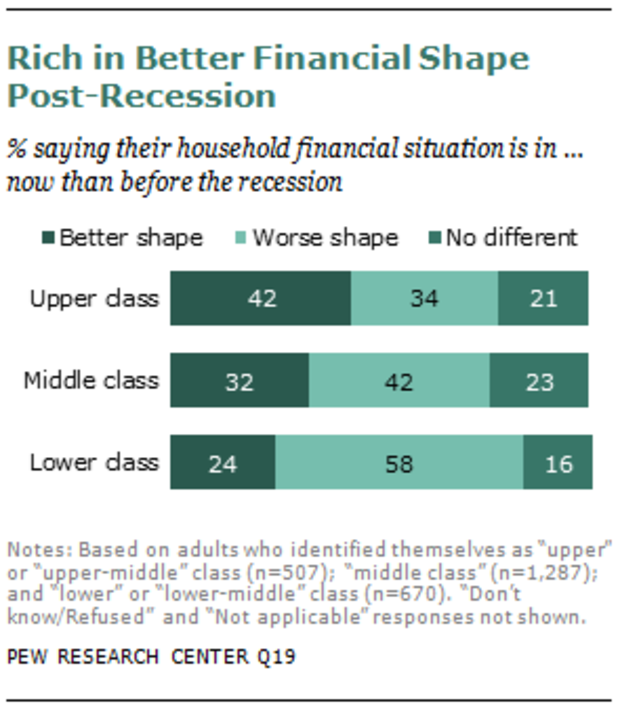What do Americans think of the rich?
(MoneyWatch) Many Americans think the rich are less honest and greedier than average people, although the wealthy also get credit for working harder than others, according to a new study by the Pew Research Center,
The study found that a plurality of Americans believe rich people are smarter and harder working than those with lower income; 24 percent think the rich are less likely to work harder. Yet 34 percent also believe wealthy people are less honest than average people, while 55 percent think they are greedier.
Those attitudes dovetail with what appears to be Americans' sinking confidence in their chances of getting ahead. More than 6 of 10 respondents to the Pew survey said they believe "most people who want to get ahead can make it if they are willing to work hard." That represents a significant drop since 1999, when roughly three-quarters of people expressed confidence that hard work pays off. It also suggests that many people think they are to blame for not earning more.
Is the U.S. economy healing or coughing blood?Suicide rate jumps amid European financial crisisCriminal charges unlikely for MF Global execs
But who, exactly, are the rich? According to the Pew study, Americans think of the wealthy as college-educated, home-owning, married Caucasians between the ages of 30 and 65 who make $150,000 a year. People are also inclined to believe that members of this group don't pay enough taxes and are healthier and happier than those who earn less, the study suggests.
Not surprisingly, people's politics or ideological leanings seem to color their attitudes toward the affluent. Republicans are far more likely to view the rich as hard-working than Democrats, for example. If people across income strata can agree on one thing, it's on who exactly constitute the rich -- not them: Nearly 99 percent of Americans describe themselves as belonging to the middle class.
This could be because people perceive the rich as those who are getting more of the nation's wealth, with data indicating that nearly all Americans have gotten less over in recent years. The period from 2000 to 2010 was the first decade since 1945 in which mean family incomes declined for Americans in all income tiers, according to data from the U.S. Census Bureau and Federal Reserve Board of Governors.
Indeed, other measures shows that 2008 financial crash and ensuing economic crisis has hit the middle class harder than any other group. The middle-income tier -- which Pew defined as all adults whose annual household income is two-thirds to double the national median -- is the only one that has shrunk in size, a trend that has continued over the past four decades.
"Adults who self-identify as being in the upper or upper-middle class are generally happier, healthier and more satisfied with their jobs than are those in the middle or lower classes," according to Pew." And they are much less likely to have suffered economic hardships as a result of the recession."
In 2011, this middle-income group made up 51 percent of all adults, down from 61 percent in 1971. At the same time the upper-income tier constituted 20 percent of the adult population, up from 14 percent in 1971. However, only the upper-income tier has increased its share in the nation's household income in the past 40 years. It now receives 46 percent of national income, up from 29 percent four decades ago. The middle tier now takes in 45 percent, down 17 percent from 1971. The lower tier takes in 9 percent, down from 10 percent.
